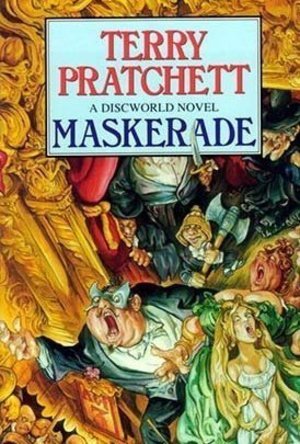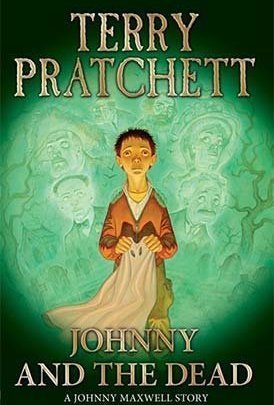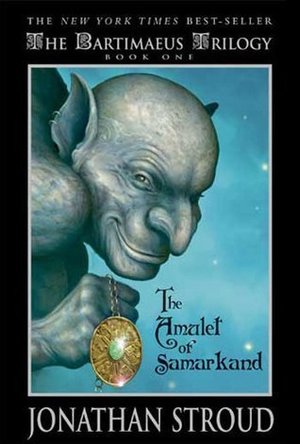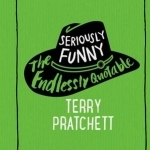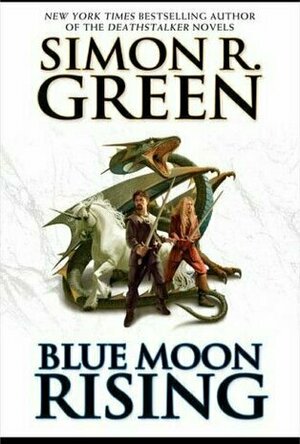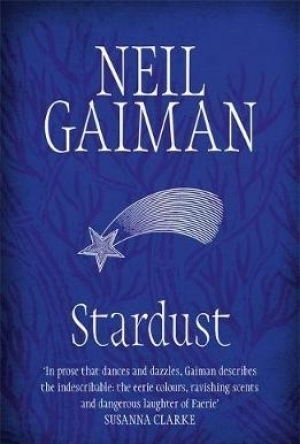Search
David McK (3687 KP) rated Maskerade (Discworld, #18; Witches #5) in Books
Mar 28, 2021 (Updated Aug 19, 2023)
!!!!!
If I was forced to pick, I would have to say that - speaking personally - I think Terry Pratchett was at the height of his powers in the mid-to-late 90s, before the Discworld books started becoming overly serious.
So, around the time of the likes of 'Lords and Ladies, 'Small Gods', and this one, in other words.
(and I've just realised that 2/3rds of those books quoted concern The Witches Nanny Ogg and Granny Weatherwax)
In this one, and following Magrat marriage to King Verence, the Witches find themselves down to a duo instead of a trio, and - since you can't have a coven of two ("When shall we ... two ... meet again ....") - are in need of a replacement (well, so Nanny Ogg thinks).
Said replacement is the first appearance of Agnes Nitt who, unfortunately (from their perspective) has moved to the city of Ankh-Morpork and joined the Opera.
Cue Pratchett's take on 'The Phantom of the Opera' (which, when I first read this, I'd never actually seen) ...
So, around the time of the likes of 'Lords and Ladies, 'Small Gods', and this one, in other words.
(and I've just realised that 2/3rds of those books quoted concern The Witches Nanny Ogg and Granny Weatherwax)
In this one, and following Magrat marriage to King Verence, the Witches find themselves down to a duo instead of a trio, and - since you can't have a coven of two ("When shall we ... two ... meet again ....") - are in need of a replacement (well, so Nanny Ogg thinks).
Said replacement is the first appearance of Agnes Nitt who, unfortunately (from their perspective) has moved to the city of Ankh-Morpork and joined the Opera.
Cue Pratchett's take on 'The Phantom of the Opera' (which, when I first read this, I'd never actually seen) ...
David McK (3687 KP) rated Johnny and the Dead (Johnny Maxwell #2) in Books
May 27, 2023
The late, great, Sir Terry Pratchett is probably better known for his Discworld novels.
Which, primarily albeit not exclusively, are aimed towards a more adult audience.
However, during the 1990's, he also wrote a trilogy of novels that were aimed at the younger audience, starting with Only You Can Save Mankind and ending with Johnny and the Bomb, with this one tucked away nicely in the middle. These novels have become known as the Johnny Maxwell trilogy, following the same core characters as Johnny Maxwell (obviously) and his friends Yo-less, Wobbler and Big Mac.
In this one, Johnny learns that the local cemetery is about to be demolished, which comes as news to the residents of said cemetery (who only Johnny is able to see - I kept waiting for the 'I see dead people' gag, before realising this was released before the movie 'The Sixth Sense'), and leading to a local outcry over the same.
It hits different now, 30 years on from when I first read it (due to life events).
Which, primarily albeit not exclusively, are aimed towards a more adult audience.
However, during the 1990's, he also wrote a trilogy of novels that were aimed at the younger audience, starting with Only You Can Save Mankind and ending with Johnny and the Bomb, with this one tucked away nicely in the middle. These novels have become known as the Johnny Maxwell trilogy, following the same core characters as Johnny Maxwell (obviously) and his friends Yo-less, Wobbler and Big Mac.
In this one, Johnny learns that the local cemetery is about to be demolished, which comes as news to the residents of said cemetery (who only Johnny is able to see - I kept waiting for the 'I see dead people' gag, before realising this was released before the movie 'The Sixth Sense'), and leading to a local outcry over the same.
It hits different now, 30 years on from when I first read it (due to life events).
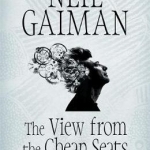
The View from the Cheap Seats: Selected Nonfiction
Book
The View from the Cheap Seats draws together myriad non-fiction writing by international phenomenon...
David McK (3687 KP) rated Equal Rites: Discworld Novel 3 in Books
Oct 17, 2021
Extremely early (only the third!) Discworld book, and the first appearance of the marvellous Granny Weatherwax - one of the late, great, Sir Terry Pratchett's best creations.
It's also somewhat obvious that Pratchett is still settling into his groove here; still finding his feet as an author, and still expanding upon the actual Discworld itself - there's little, here, in the way of the footnotes that some of the later entries have in abundance, while there are also aspects of Unseen University and of the races that live on the Disc that, shall we say, 'mutate' in those later entries - this is well before the time of, say, Mustrum Ridcully, with the UU itself and the wizards who inhabit it come across very different than they do later.
That, by the by, is not a knock - more of an observation.
The plot in this one involves Granny Weatherwaxes first student, Eskarina Smith, who - due t0 a mixup at birth - is destined to become the Discs first female Wizard - a profession previously only practiced by those of the male sex.
But, you know what they say (apparently), 'nary a slip twixt cup and lip' ...
It's also somewhat obvious that Pratchett is still settling into his groove here; still finding his feet as an author, and still expanding upon the actual Discworld itself - there's little, here, in the way of the footnotes that some of the later entries have in abundance, while there are also aspects of Unseen University and of the races that live on the Disc that, shall we say, 'mutate' in those later entries - this is well before the time of, say, Mustrum Ridcully, with the UU itself and the wizards who inhabit it come across very different than they do later.
That, by the by, is not a knock - more of an observation.
The plot in this one involves Granny Weatherwaxes first student, Eskarina Smith, who - due t0 a mixup at birth - is destined to become the Discs first female Wizard - a profession previously only practiced by those of the male sex.
But, you know what they say (apparently), 'nary a slip twixt cup and lip' ...
David McK (3687 KP) rated The Amulet of Samarkand (Bartimaeus, #1) in Books
Sep 1, 2024
Well.
Have you ever read any Terry Pratchett? (incidentally, one of my favourite)
The author of this surely has; in particular putting me in mind somewhat of Eric.
This, however, is set in a (fictional) London, still on planet Earth, but where magic is real and practiced by the ruling (and not very pleasant) class of Magicians, who summon magical creatures to do their dirty work.
Which is where Bartimaeus comes in: a djinni summoned by the boy would-be Magician Nathaniel (aka John) and initially bound to do his will until he discovers his masters birth name.
The story is told roughly every 2 or 3 chapters about from the perspective of both Bartimaeus (in the first person, and with tons of footnotes) himself and from that of Nathaniel (third person, no footnotes), leading up to the final chapter which flits between the both of them in the one chapter alone.
The result, I found, was an enjoyable enough read (although you do want to smack one main character in particular around the head) - I may pick up parts 2 and 3 in the series, but would not be in any great rush to do so.
Have you ever read any Terry Pratchett? (incidentally, one of my favourite)
The author of this surely has; in particular putting me in mind somewhat of Eric.
This, however, is set in a (fictional) London, still on planet Earth, but where magic is real and practiced by the ruling (and not very pleasant) class of Magicians, who summon magical creatures to do their dirty work.
Which is where Bartimaeus comes in: a djinni summoned by the boy would-be Magician Nathaniel (aka John) and initially bound to do his will until he discovers his masters birth name.
The story is told roughly every 2 or 3 chapters about from the perspective of both Bartimaeus (in the first person, and with tons of footnotes) himself and from that of Nathaniel (third person, no footnotes), leading up to the final chapter which flits between the both of them in the one chapter alone.
The result, I found, was an enjoyable enough read (although you do want to smack one main character in particular around the head) - I may pick up parts 2 and 3 in the series, but would not be in any great rush to do so.
Mike (8 KP) rated Seriously Funny: The Endlessly Quotable Terry Pratchett in Books
Oct 10, 2018
Lovely looking little book, smaller than I was expecting, but it is really nice. No dust jacket but a nice thick textured cover and inner pages that make you feel dizzy!
I read it this evening and I'll be completely honest - I was a bit disappointed, although it is a pretty book, it is also pretty thin - 128 pages.including a title page, printing information page, contents page, blank page, Overview, another blank page, 1 page mini bio, 105 quotes*, 4 pages of "By Terry Pratchett" lists.
I think that for £9.99 they could have found more than 105 "seriously funny" quotes from over 50 books and other sources - there isn't even one from each Discworld book. Even some illustrations would have been nice (9 repeats of the same hat picture is not very exciting).
Obviously as a collectore I had to buy it - as will most of us, does it does seem a bit of a "cash in" just to make money out of us, they are pretty much guaranteed to sell over a million copies so they could have made it more substantial for the money.
Still made me laugh out loud a couple of times though.
*One quote per page, separated by title pages
I read it this evening and I'll be completely honest - I was a bit disappointed, although it is a pretty book, it is also pretty thin - 128 pages.including a title page, printing information page, contents page, blank page, Overview, another blank page, 1 page mini bio, 105 quotes*, 4 pages of "By Terry Pratchett" lists.
I think that for £9.99 they could have found more than 105 "seriously funny" quotes from over 50 books and other sources - there isn't even one from each Discworld book. Even some illustrations would have been nice (9 repeats of the same hat picture is not very exciting).
Obviously as a collectore I had to buy it - as will most of us, does it does seem a bit of a "cash in" just to make money out of us, they are pretty much guaranteed to sell over a million copies so they could have made it more substantial for the money.
Still made me laugh out loud a couple of times though.
*One quote per page, separated by title pages
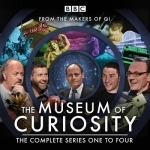
The Museum of Curiosity: 24 Episodes of the Popular BBC Radio 4 Comedy Panel Game: Series 1-4
Full Cast, Richard Turner, John Lloyd and Dan Schreiber
Book
The Museum of Curiosity is BBC Radio 4's monumental comedy edifice, and the only one with gargoyles...

Oxford Dictionary of Humorous Quotations
Book
Writer, broadcaster, and wit Gyles Brandreth has completely revised Ned Sherrin's classic collection...
David McK (3687 KP) rated Blue Moon Rising (Forest Kingdom #1) in Books
Jun 24, 2022
Once upon a time ...
this was my favourite book.
That was back in the early 90s, back when I was in my tweens and back before I had discovered the likes of Terry Pratchett or Bernard Cornwell.
I then lost track of the author for a good two decades or so, only recently re-discovering him when I happened to chance across the 'GraphicAudio' version of the novel on Audible.
I did wonder what a GraphicAudio meant: simply that it was fully dramatized with a full cast, background music, sound effects etc etc - basically, everything but the actual visual aspect! - instead of only one, maybe two, no more than a handful of people reading the story.
As for that story? Firmly in the fantasy genre - Princes, dragons, unicorns, Princesses, magic, royal politics et al - however I do remember when I first read it all those years ago thinking that I had never come across anything quite like it before. That still holds true to this day: yes, it does have all those familiar elements of a classic Good vs Evil story, but the real delight is in the subverting of expectations, and in the story of Rupert and Julia and the DarkWood / Blue Moon.
this was my favourite book.
That was back in the early 90s, back when I was in my tweens and back before I had discovered the likes of Terry Pratchett or Bernard Cornwell.
I then lost track of the author for a good two decades or so, only recently re-discovering him when I happened to chance across the 'GraphicAudio' version of the novel on Audible.
I did wonder what a GraphicAudio meant: simply that it was fully dramatized with a full cast, background music, sound effects etc etc - basically, everything but the actual visual aspect! - instead of only one, maybe two, no more than a handful of people reading the story.
As for that story? Firmly in the fantasy genre - Princes, dragons, unicorns, Princesses, magic, royal politics et al - however I do remember when I first read it all those years ago thinking that I had never come across anything quite like it before. That still holds true to this day: yes, it does have all those familiar elements of a classic Good vs Evil story, but the real delight is in the subverting of expectations, and in the story of Rupert and Julia and the DarkWood / Blue Moon.
My first exposure to Neil Gaiman was when he co-wrote Good Omens: The Nice and Accurate Prophecies of Agnes Nutter, Witch with Terry Pratchett.
This, I believe, was the first of his solo novels that I read.
Circa 2006, not all that long before the movie on which it is based came out.
It was also a, how do we put this?, 'normal' prose novel: not a graphic novel; nor even an illustrated novel (as this is). Indeed, I didn't even know at first that the prose version which I read had previously been issued as an illustrated novel, until I saw it mentioned 'based on the work by Neil Gaiman and Charles Vess' at the end of the movie.
It then took me approximately a good decade or so before I finally got round to actually reading that version of the work, when I came across it on sale via Comixology. And, I have to say, the illustrations do add a certain Je Ne Sais Quoi to the work: a work which, while the main beats may be familiar to the reader from the movie version, is also very much its own thing and which includes elements not in said movie (Tristran’s wider family, for one, or even the much sadder ending in this)
This, I believe, was the first of his solo novels that I read.
Circa 2006, not all that long before the movie on which it is based came out.
It was also a, how do we put this?, 'normal' prose novel: not a graphic novel; nor even an illustrated novel (as this is). Indeed, I didn't even know at first that the prose version which I read had previously been issued as an illustrated novel, until I saw it mentioned 'based on the work by Neil Gaiman and Charles Vess' at the end of the movie.
It then took me approximately a good decade or so before I finally got round to actually reading that version of the work, when I came across it on sale via Comixology. And, I have to say, the illustrations do add a certain Je Ne Sais Quoi to the work: a work which, while the main beats may be familiar to the reader from the movie version, is also very much its own thing and which includes elements not in said movie (Tristran’s wider family, for one, or even the much sadder ending in this)
